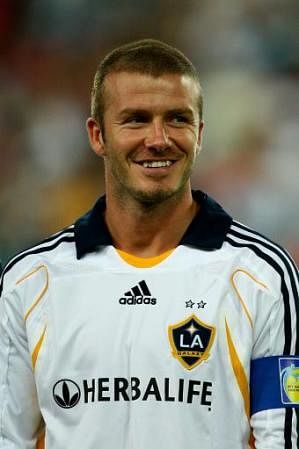
What does 'Soccer' mean to America
“I tell you folks. It’s harder than it looks. It’s a long way to the top!” These are the famous words from ACDC’s “It’s a long way to the top” that hit prominence through the movie, “School of Rock”. The lyrics are similar to soccer’s rise in America, which still has an enormous way to go. Criticize me, but I am going to have to use the word “soccer” throughout this article – only because it jells better with the term, America.
 A decade ago, David Beckham and Theirry Henry were the two most marketable stars in the Barclays Premier League. Today, they have jumped ships across the Atlantic to play under the Major League Soccer curtain – the governing body of the sport in America. Guaranteed, the sport has received a huge boost in terms of player quality, marketability but soccer in the United States still has a long way to the top. An average sports buff in the US will definitely know who won the Super Bowl in American Football, the NBA title and the World Series in Baseball. However, the same fan will mostly likely not be able to name the winner of the MLS Cup. In fact, I didn’t know it myself till I used google. Why does this happen? What does the sport of soccer or football (in non-American conventions) mean to the American Public? How will this situation change?
A decade ago, David Beckham and Theirry Henry were the two most marketable stars in the Barclays Premier League. Today, they have jumped ships across the Atlantic to play under the Major League Soccer curtain – the governing body of the sport in America. Guaranteed, the sport has received a huge boost in terms of player quality, marketability but soccer in the United States still has a long way to the top. An average sports buff in the US will definitely know who won the Super Bowl in American Football, the NBA title and the World Series in Baseball. However, the same fan will mostly likely not be able to name the winner of the MLS Cup. In fact, I didn’t know it myself till I used google. Why does this happen? What does the sport of soccer or football (in non-American conventions) mean to the American Public? How will this situation change?
According to Nielsen (a TV research company), the records for the most watched games in American sports are as follows: around 112 million viewers tuned in for the Giants’ victory at the 2012 Super Bowl, 72 million for Game 6 of the 1998 NBA finals that featured Michael Jordan, and 39.1 million for the Diamondbacks’ upset over the global brand of New York Yankees in 2001. For the MLS, TV audience for the entire playoffs combined hasn’t grossed 20 million since David Beckham landed in the United States. Evidently, MLS has no standing in viewership compared to its rival sports. When David Beckham took on his new avatar of resurrection by announcing to play for the Galaxy, everybody in the MLS world thought it would change the fate of soccer in modern American culture. Unfortunately, he hasn’t, at least not significantly. The league has grown in attracting global players but not in captivating the audience. TV ratings have been stagnant for years. Season ticket sales which measure the public’s interest in the sport remain hardly sought after. In the MLS, tickets are sold on Game Day, rarely purchased as a season package. Students and teenagers attend these games to pass time, hang out – not anywhere close to being passionate followers of the sport. In fact, players in the MLS gain substantial coverage outside the country than within – just ask Landon Donovan and Clint Dempsey about it. The ineffectiveness of soccer’s market in US can be chiefly attributed to a single cause: college soccer’s unpopularity.
College sports in America are bigger than in any nation. But there is a missing link for soccer here. Not many people actually watch college soccer in this nation as much as they watch American Football, Basketball or even the dying sport of Baseball. The public know that Alabama won the BCS championship in American Football and Kentucky’s invincible line-up stormed over other basketball colleges in their title run. Ask the public who won the “coveted” College Cup in soccer and their stare at you would be clueless. The success of any sport in USA is broadly determined by its college structure – what the universities across the nation feed into the professional leagues. Draft picks in the NFL (National Football League), NBA (National Basketball Association) and MLB (Major League Baseball) receive widespread attention. The youngsters’ stardom statuses are achieved within a span of two-three minutes, decided by the teams that pick them up from colleges. However, the MLS’ draft is almost never cared about. Soccer players from colleges across the nation are not centerpieces of attention as much they might have been in Football, Baseball and Basketball. Switch on FOX, TNT and ESPN (America’s biggest sports broadcasters) and the reports constantly rave over Anthony Davis (NBA’s first draft pick) yet not a single channel would telecast Andrew Wenger’s success story (MLS’ numero uno pick). Audiences glue to their TVs when college football or basketball is showcased, but not when soccer is. The best way to change the destiny of MLS’ ill-fated journey is to not only invest money on another David Beckham or Thierry Henry, but to improve the standards of college soccer so that tomorrow’s stars receive nationwide coverage.
Beckham, England’s favorite sporting icon, sold more jerseys in the United States than any player before. Girls purchased his topless posters to decorate their rooms. Each time he beautifies his hairdo or beard, a fanatic inspires to copy him. However, in his five years, he has diverted the attention from rising soccer players to himself. If Beckham shaves his beard, the media reports flood the internet. While, on the other hand, not many genuinely care if a young and budding star scores a sensational goal in the MLS. Not many care if Galaxy won the MLS Cup but they do know that Beckham lifted the trophy. This has to change.
And the power of change lies in the hands of the administrators who should seek to improve college soccer by marketing the sport, right from the grassroots. The success of the sport lies in inspiring more kids to play it at the professional level. What the MLS failed was in not encouraging the youth to take up the sport but solely to market the term “soccer” through global heroes, who hold nowhere as much appeal as Peyton Manning (NFL), Lebron James (NBA) and Kobe Bryant (NBA) do. Hence, the best solution is to develop from the grassroots just like how the sports of Basketball, American Football and Baseball have successfully done.